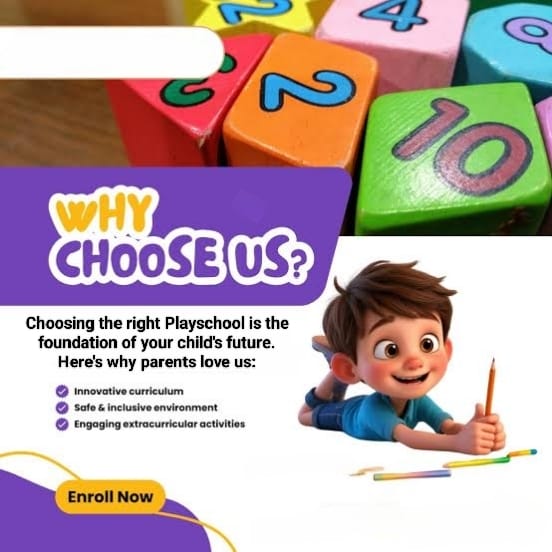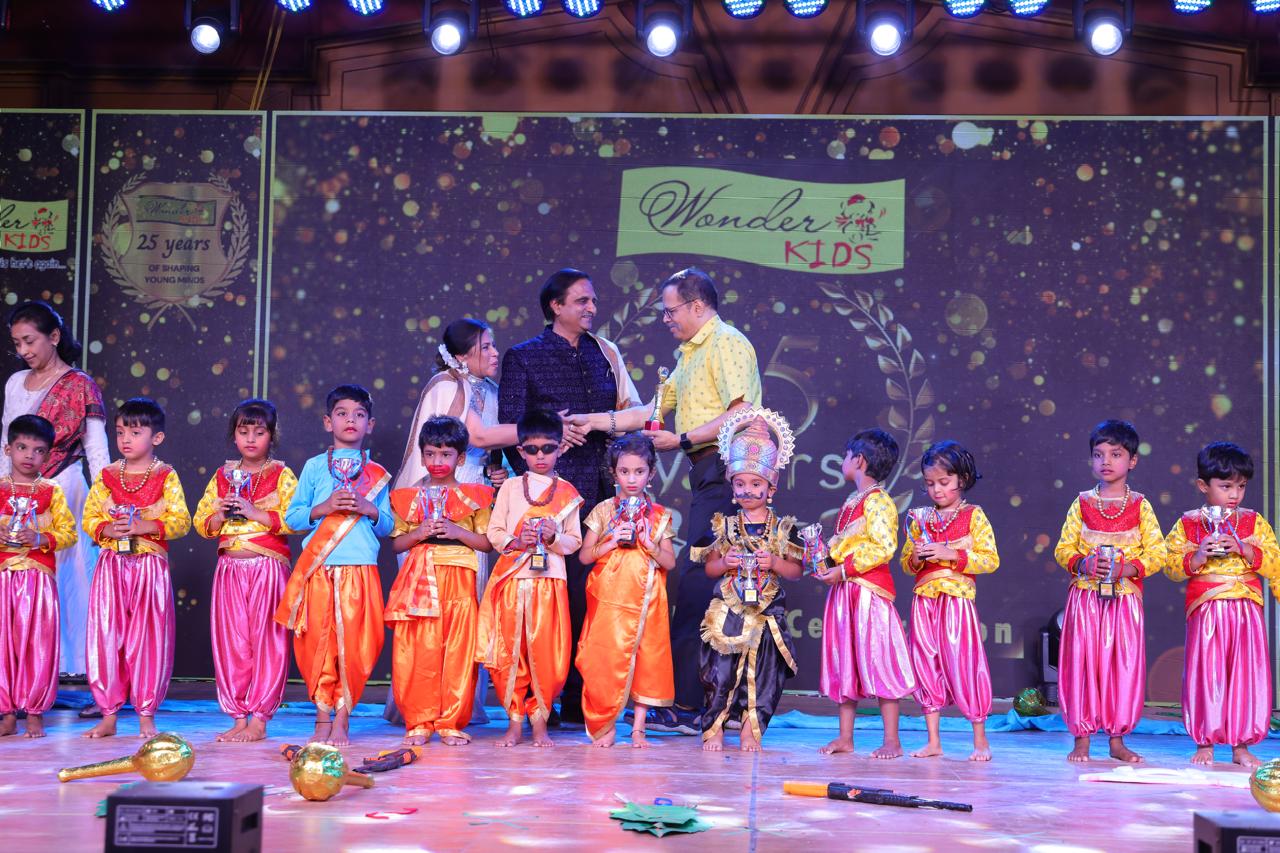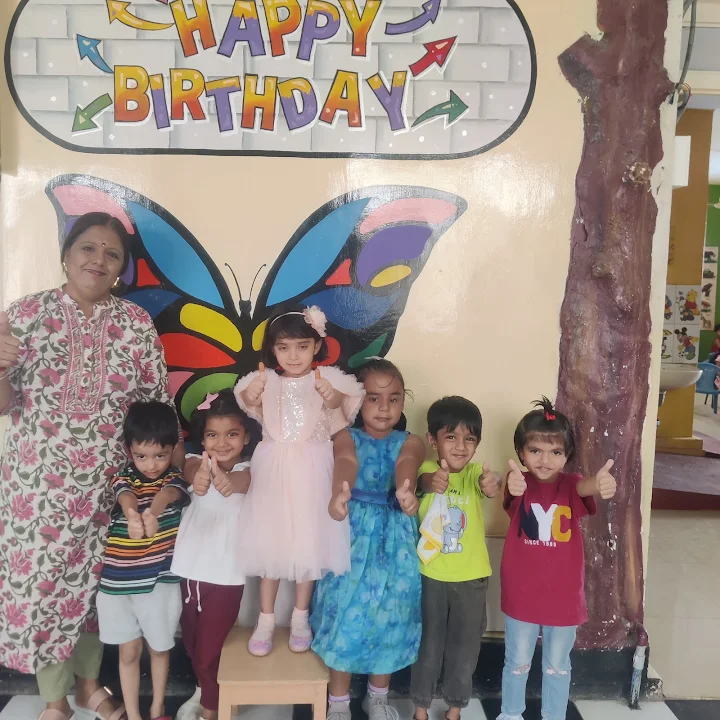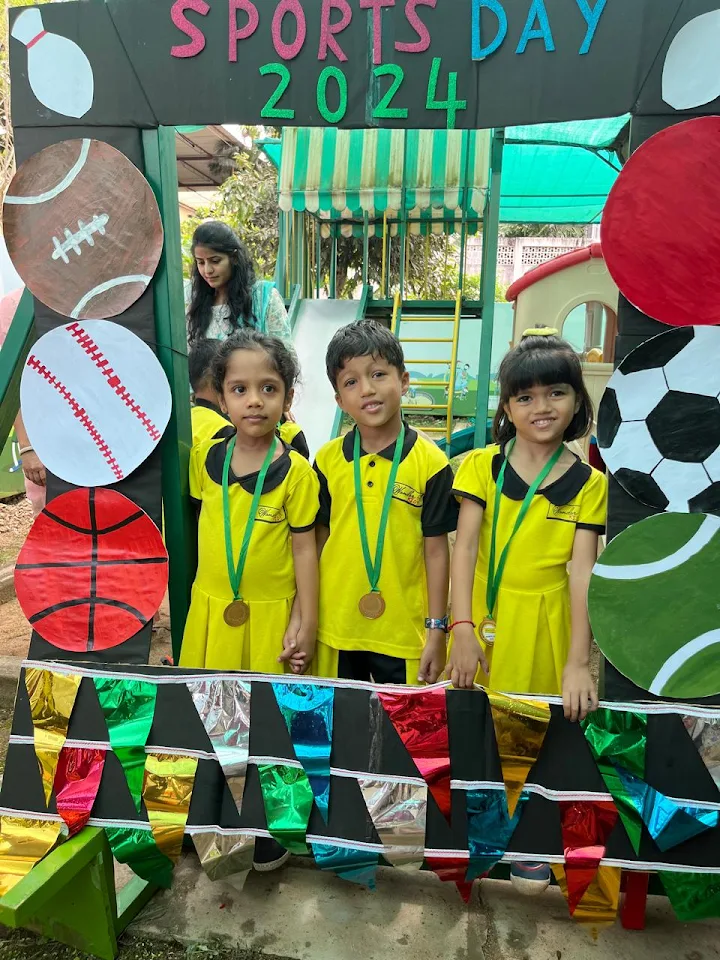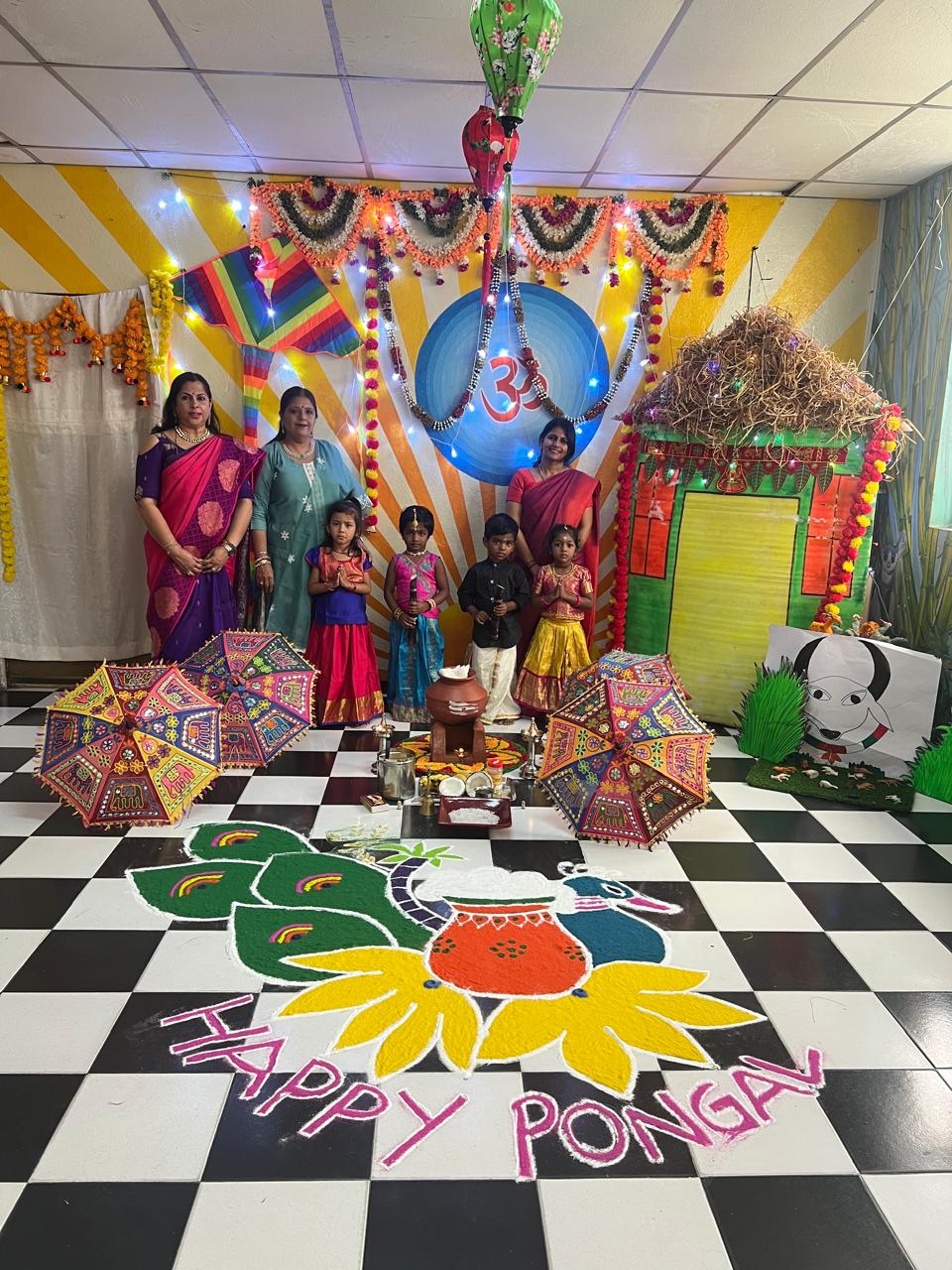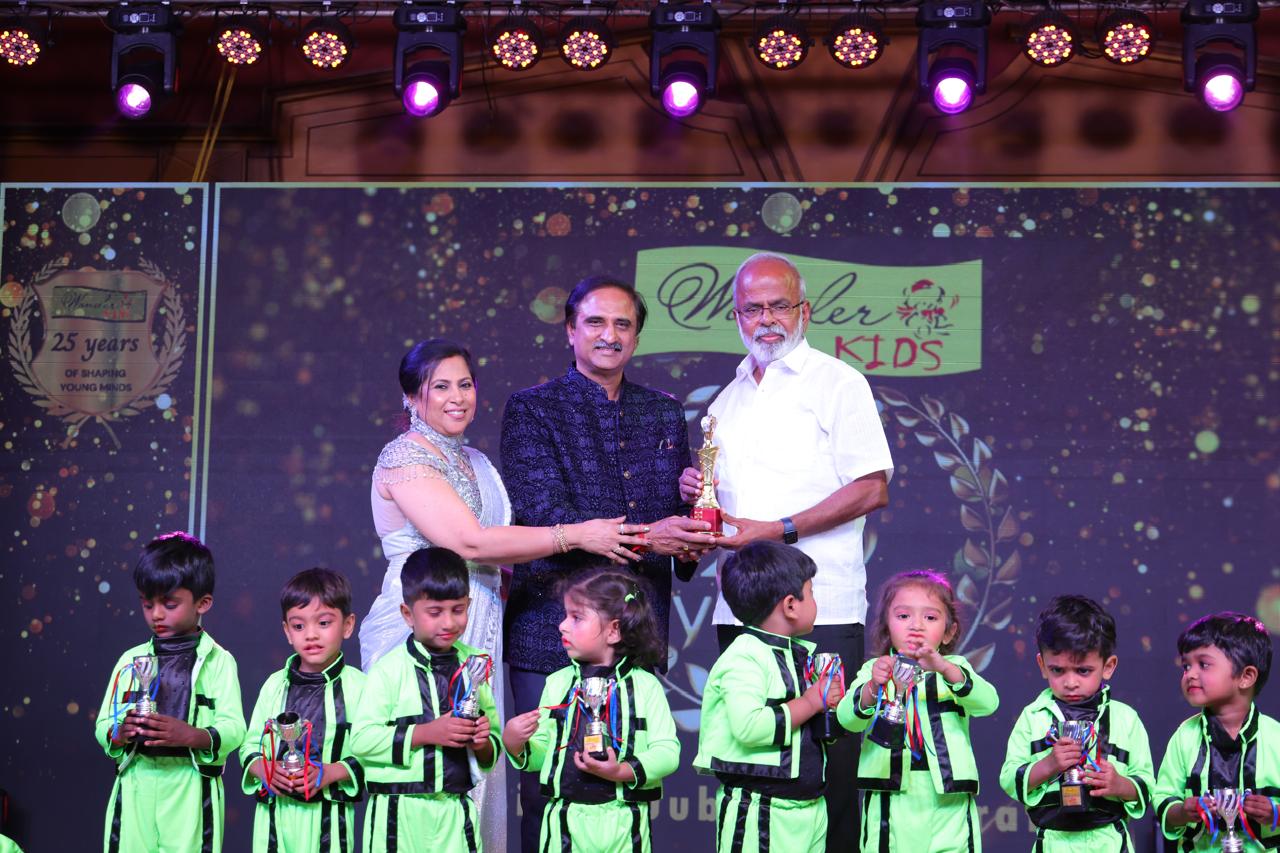🧠 UKG -Upper Kinder Garden
Preparing Young Minds for Big School
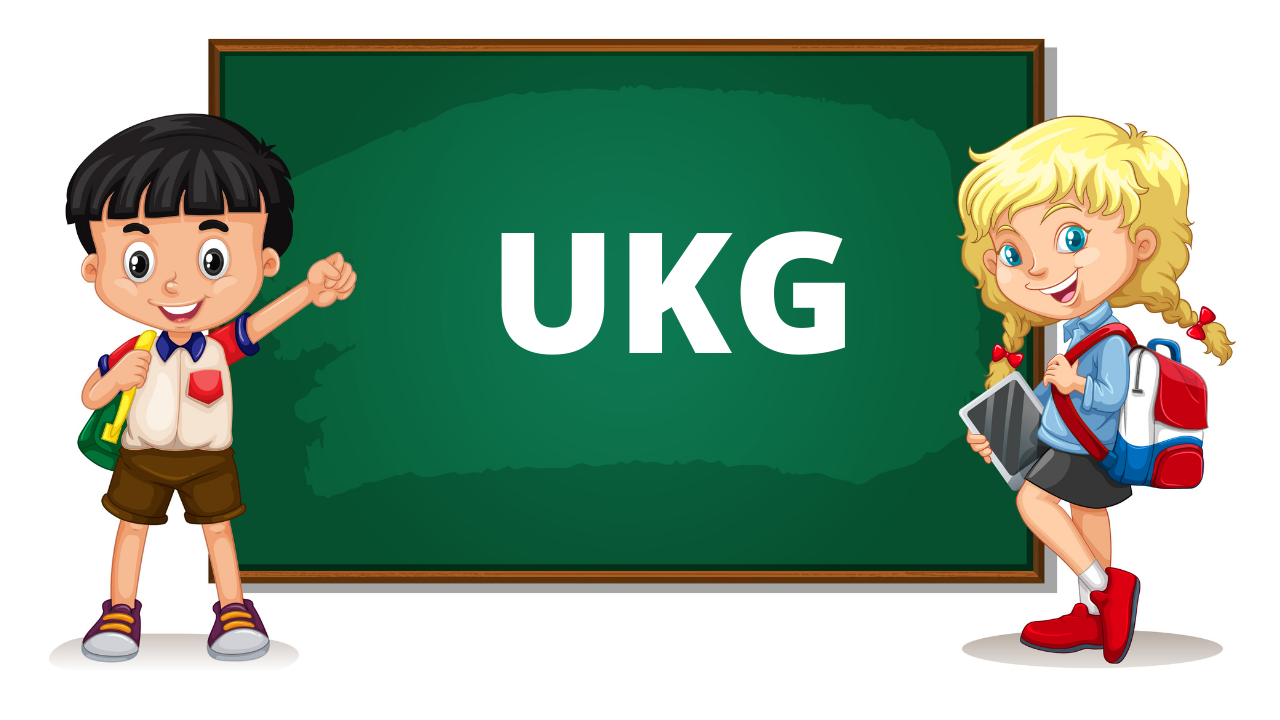
Confidence, Curiosity & Readiness for Tomorrow
The UKG (Upper Kindergarten) program is a pivotal stage where children prepare for the transition to formal schooling. Our curriculum is structured to reinforce foundational concepts in literacy, numeracy, and general awareness while fostering independence, critical thinking, and collaboration.
With a focus on concept clarity and emotional readiness, children leave UKG equipped not just with academic skills, but also with the confidence and discipline needed for primary school success.
01
🎯 Curriculum & Learning Modules
Play Group introduces young learners to structured routines and playful discovery:
Language Exploration
Listening, speaking, rhymes, picture books, and simple vocabulary.Motor Skills Development
Crawling, climbing, grasping, stacking, and building.Sensory Play
Sand, water, textured materials, musical toys, and hands-on exploration.Emotional & Social Development
Group play, bonding with teachers, and identifying emotions.Creative Expression
Scribbling, coloring, singing, and free movement.Self-help Skills
Washing hands, eating independently, putting toys away.
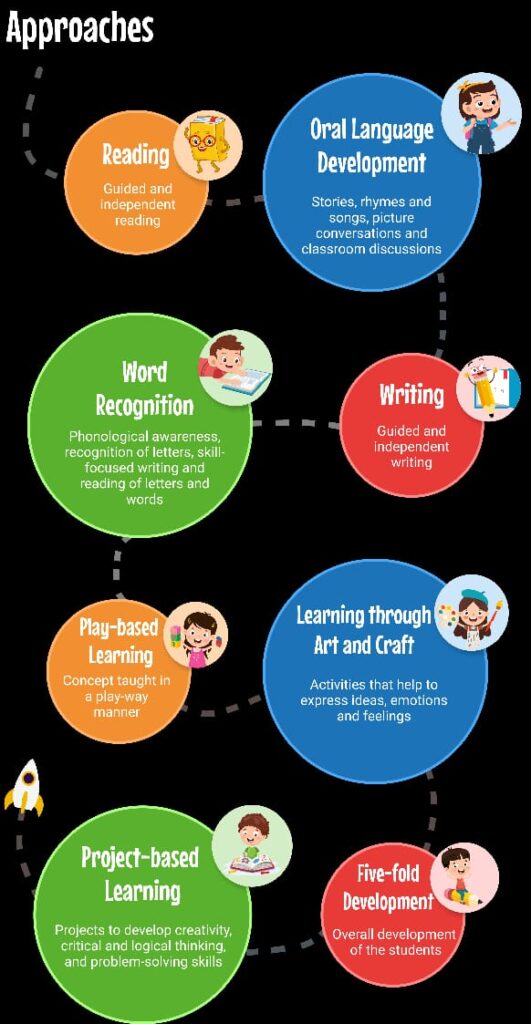
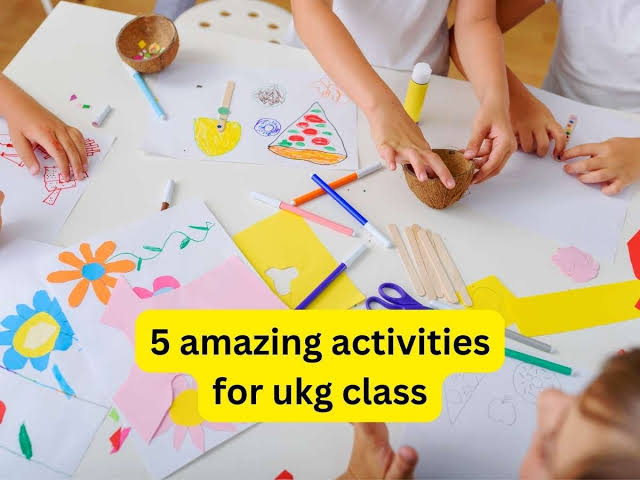
02
📅 Daily Activities
Our UKG day is thoughtfully structured to strengthen knowledge, creativity, and confidence:
- Morning Circle & Motivation
Greetings, calendar talk, affirmations, and interactive theme-based discussions. - Focused Learning Sessions
In-depth learning in language, math, science, and logical thinking with engaging activities. - Project-Based Exploration
Hands-on group projects to promote collaboration, problem-solving, and communication. - Reading & Story Corners
Developing fluency, vocabulary, and imagination through guided reading and storytelling. - Creative Expression Time
Art, craft, music, and drama to encourage emotional expression and fine motor skills. - Outdoor Play & Physical Fun
Organized games, free play, and physical exercises to build strength and sportsmanship. - Reflection & Wrap-Up
End-of-day recap, sharing experiences, reward stars, and positive reinforcement.
02
🌟 What Makes Our UKG Program Unique?
Gentle separation support and emotional bonding.
Toddler-friendly classrooms and sensory-safe play zones.
Teachers trained in early childhood care and responsiveness.
Emphasis on rhythm, comfort, and joy—not pressure.
Parent communication and settling-in guidance.
